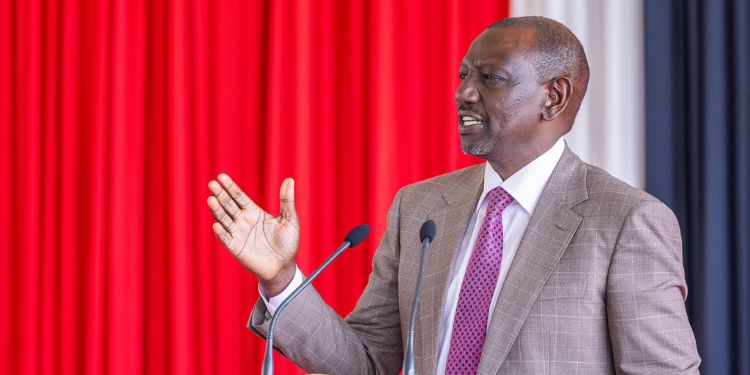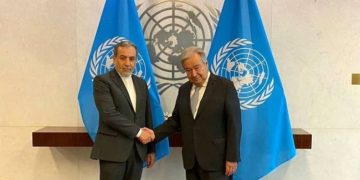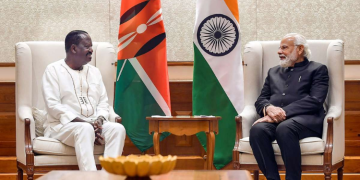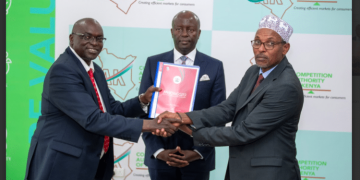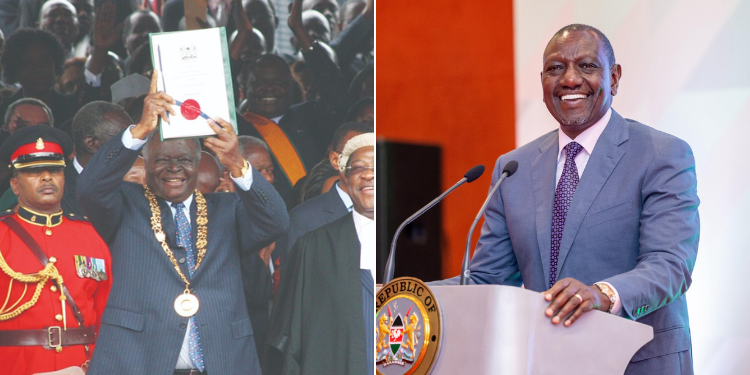Fifteen years ago, then-Agriculture Minister William Ruto emerged as a leading voice in the campaign against Kenya’s proposed 2010 constitution.
In an April 2010 interview with The Standard, Ruto argued that the draft, if enacted without amendments, risked entrenching inequality rather than promoting prosperity.
Ruto took aim at the devolution blueprint in the draft, calling it “inadequate and a potential source of inequality and marginalization.”
He noted that regional units had been pared down to weak county governments unlikely to balance the power of the presidency. “You do not expect councilors to stand up to a president,” he remarked.
Population-Based Disparities
Another concern Ruto raised was the minimum population requirement for constituencies, 40,000 residents.
He argued that sparsely populated regions, especially in North Eastern, Upper Eastern, and parts of the North Rift, risked losing representation.
“We must not pass any constitution that would further marginalise communities that have for decades been complaining of being sidelined,” he warned.
Land Ownership
Ruto flagged a clause granting Parliament authority to set minimum and maximum acreage for private land holdings as potentially harmful.
Also Read: Today in History: When Raila Odinga and His Supporters Were Teargassed Upon His Return from the US
He cautioned that poor citizens with land below the minimum size might find their holdings effectively invalidated.
The measure, he suggested, was contrary to Kenya’s Vision 2030 goals of promoting agricultural productivity and food security.
Of historical note, he even likened the risk to “Mugabe-style land seizures.”
Referendum Timing Dispute
Ruto and fellow “No” camp members believed constitutional amendments should precede the referendum, contrary to the “Yes” camp’s stance that changes could wait until after adoption.
Ruto warned that the amendment process post-enactment would be cumbersome.
Intersection with Church Concerns
Kenya Council of Church Alliances and Ministries, aligned with Ruto’s “No” campaign, particularly over Article 26(4), which they argued was weakly worded and could facilitate expanded abortion rights.
Also contentious were provisions legalizing Kadhi courts and permitting abortion under broad conditions, sparking fears of unintended consequences.
On August 4, 2010, Kenyans approved the new constitution with about 68.6% voting “Yes,” and the document was formally promulgated on August 27.
Also Read: Ruto Declares August 27 Katiba Day
The Rift Valley, however, bucked the national trend, voting approximately 60% “No” in line with Ruto’s leadership in the region.
Ruto did ultimately concede defeat, respecting the results.
Over time, he shifted tone and embraced the new constitutional order, later criticizing ruling coalitions for violating its principles.
Ruto Declares August 27 Katiba Day
As the sitting president, Ruto directed that August 27th be observed as a “Katiba Day” from 2025 going forward.
In a statement on August 25, Ruto said Katiba Day shall be observed throughout the territory of Kenya and all its diplomatic missions abroad to remember the promulgation of the Constitution.
He stated that the day will be dedicated to renewing Kenya’s shared commitment to the ideals of its Constitution by fostering national dialogue on constitutionalism, governance, and the rule of law.
I William Samoei Ruto, President and Commander-in-Chief of the Kenya Defence Forces, by the authority vested in me by the Constitution, do hereby proclaim that: August 27, 2025, and every 27th Day in the Month of August forever thereafter shall be observed as “Katiba Day” in commemoration of the promulgation of the Constitution of Kenya 2010.
Follow our WhatsApp Channel and X Account for real-time news updates.
